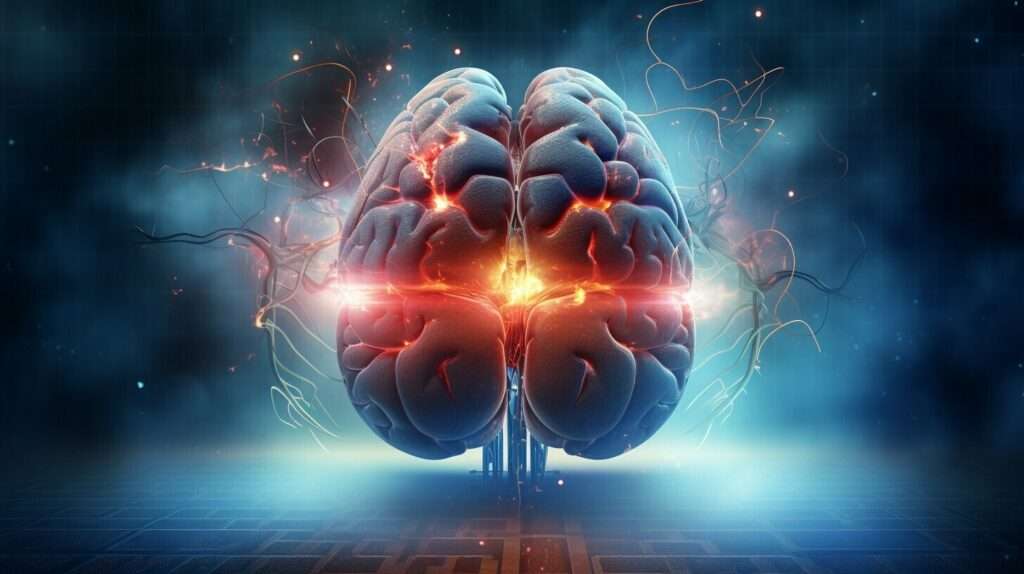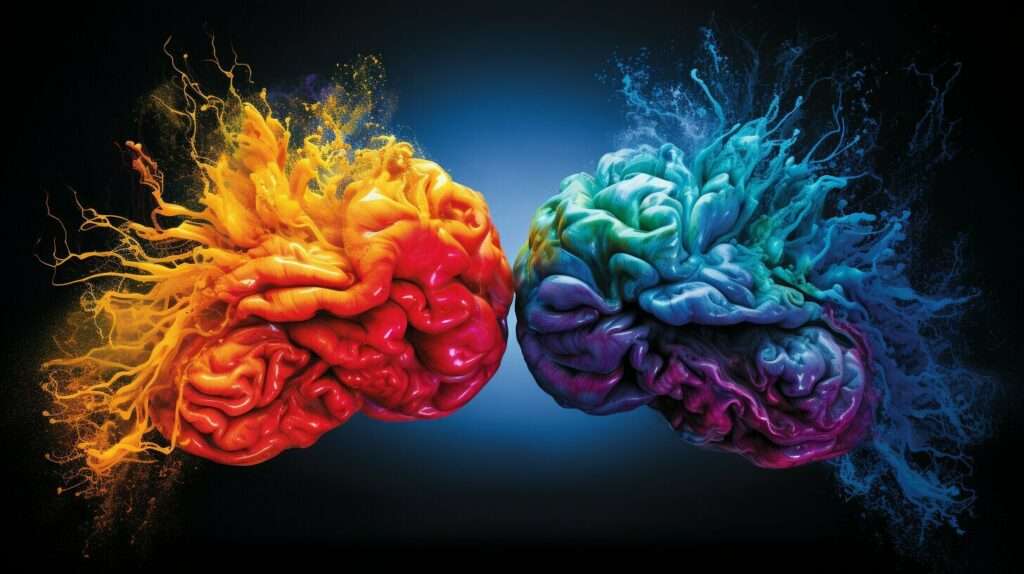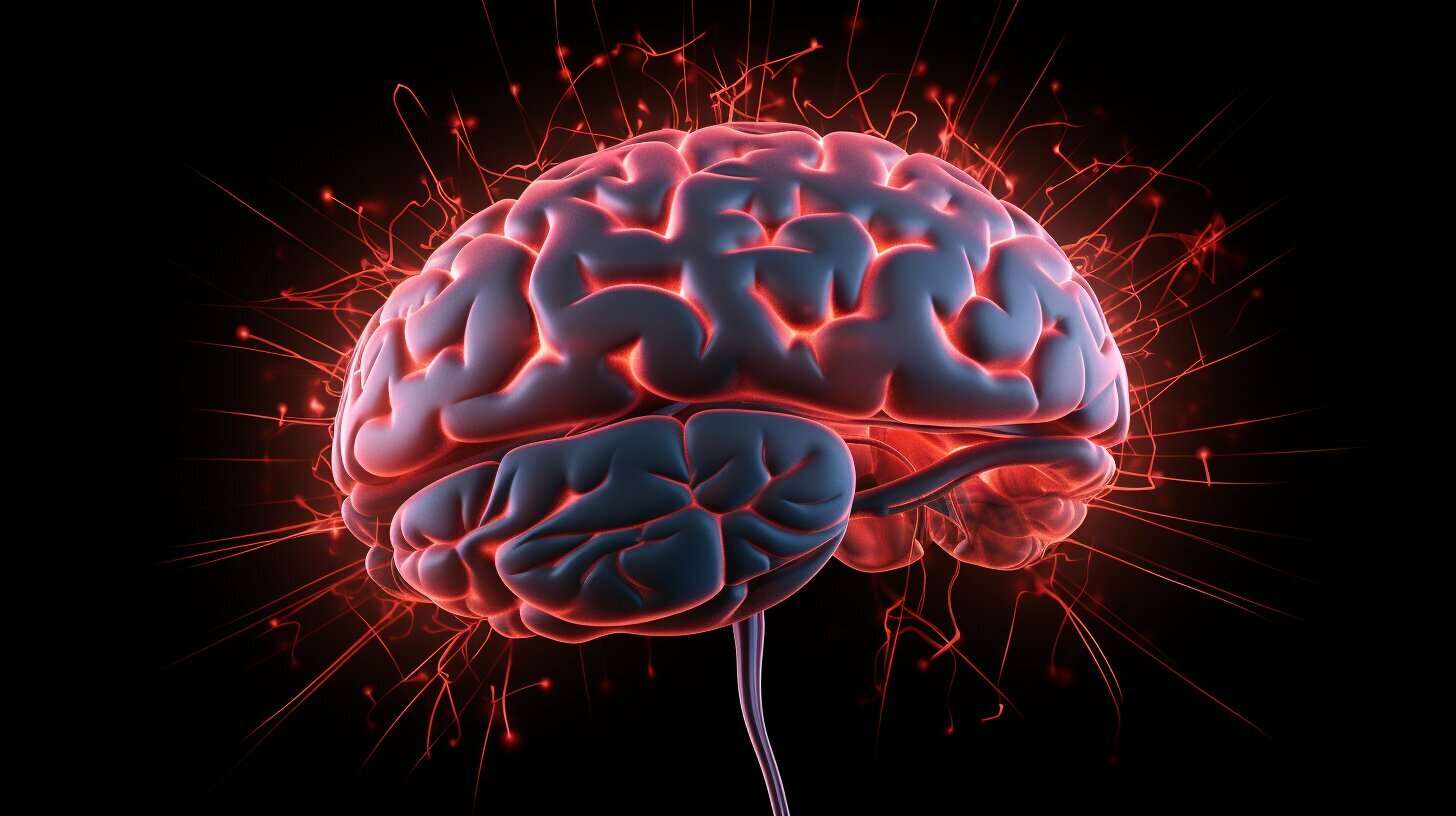Stress and anxiety are common experiences and can impact your overall health and well-being, including your brain. The effects of prolonged stress and anxiety on the brain can be detrimental, leading to cognitive impairment and reduced brain function. Understanding how stress and anxiety impact the brain is essential in managing these conditions and promoting optimal brain health.
Key Takeaways:
- Stress and anxiety can have negative effects on the brain.
- Chronic stress can lead to decreased brain function and cognitive impairment.
- Managing stress and anxiety is essential for promoting optimal brain health.
Understanding Stress and Anxiety
Stress and anxiety are two common mental health issues that can affect anyone at any time. You may experience stress before an exam or presentation, while anxiety may arise when you feel overwhelmed or unsure about a future event. While both stress and anxiety are normal responses to challenging situations, prolonged exposure can have negative effects on your brain function and mental well-being.
Stress is a physical and emotional response to a perceived threat or challenge. This response triggers the release of the stress hormone, cortisol, which prepares you to fight or flee the situation. Anxiety, on the other hand, is a more prolonged emotional response that often lacks a specific trigger. It can manifest as excessive worry or fear about everyday situations, leading to physical symptoms such as sweating, rapid heartbeat, and fatigue.

Both stress and anxiety can impact your brain health and function. Studies have shown that prolonged exposure to cortisol can lead to structural changes in the brain, affecting areas related to memory, decision-making, and emotion regulation. Additionally, anxiety can cause an imbalance in your brain’s chemical composition, specifically affecting neurotransmitters such as serotonin, GABA, and dopamine, all of which regulate mood and emotions.
Identifying Stress and Anxiety
If you experience stress or anxiety, it is important to identify the cause and learn how to manage the symptoms. Some common signs of stress include difficulty sleeping, irritability, and physical tension, while anxiety symptoms may include excessive worry, panic attacks, and avoidance of certain situations.
By understanding the nature of stress and anxiety, you can take steps to manage and reduce their impact on your brain function and overall well-being.
The Role of Cortisol in Stress Response
When stress or anxiety triggers your body’s natural stress response, it releases cortisol. This hormone causes a variety of physiological changes, such as increased heart rate, blood pressure, and blood sugar levels, that prepare your body to face the perceived threat.
While cortisol is necessary for survival in acute stress situations, prolonged exposure to high levels of cortisol can have negative effects on brain function. For example, studies have shown that chronically elevated cortisol levels can lead to reduced hippocampal volume, impaired memory, and decreased cognitive performance.
In addition, cortisol can interfere with neuroplasticity, the brain’s ability to reorganize neural connections in response to new experiences. This can have long-term effects on learning, memory, and emotional regulation.
To control cortisol levels and minimize its negative effects on brain function, it’s essential to develop stress-management strategies that work for you. Techniques such as deep breathing, mindfulness meditation, and exercise have been shown to effectively reduce cortisol levels and promote better brain health.

Image source: seowriting.ai
Effects of Stress on Brain Structure
Chronic stress not only affects the functioning of your brain but can also alter its physical structure. Studies have shown that prolonged exposure to stress can cause the brain to shrink in certain areas, such as the prefrontal cortex, which is responsible for decision-making, problem-solving, and self-control.
Additionally, chronic stress can affect the connections between brain cells, known as neural connections. These connections are essential for processing information and communication between different parts of the brain. When these connections are disrupted, it can result in cognitive impairment, reducing the effectiveness of the brain’s ability to carry out tasks like memory, learning, and concentration.
| Effects of Chronic Stress on Brain Structure: | |
|---|---|
| Reduction in the size of the prefrontal cortex | (impairment in self-control and decision-making) |
| Shrinking of the hippocampus | (reduces memory and learning abilities) |
| Disruption in neural connections | (impairment in cognitive processes) |
It is important to manage stress and anxiety to prevent these negative effects on your brain’s health and function. The following sections will discuss effective strategies for managing stress and anxiety, promoting better brain health.

Impact of Anxiety on Brain Chemistry
Anxiety can have a profound impact on the chemistry of your brain, disrupting the balance of neurotransmitters responsible for regulating your mood and emotions. These messengers, including serotonin, GABA, and dopamine, play a critical role in managing stress and anxiety, and an imbalance in these chemicals can intensify symptoms and lead to additional complications.
Serotonin is a neurotransmitter that helps regulate mood and sleep, among other functions, and imbalances can lead to depression and anxiety disorders. Gamma-aminobutyric acid (GABA) helps calm the nervous system and promote relaxation, and disruptions in GABA levels have been linked to anxiety and sleep disorders. Meanwhile, dopamine is associated with reward and pleasure sensations and can impact mood and motivation.
Chronic anxiety can cause increased levels of cortisol, the stress hormone, which can disrupt the balance of neurotransmitters in the brain. This can ultimately lead to a vicious cycle of worsening anxiety and mood disorders.
To help regulate your brain chemistry and manage anxiety, consider speaking with a healthcare professional or therapist. They may be able to recommend medications or other treatments that can restore balance to your neurotransmitters and improve your overall mental health.

The Cognitive Impairment Caused by Stress & Anxiety
Chronic stress and anxiety can affect several areas of cognitive function and lead to noticeable impairments in your thinking ability. Memory is one of the main areas affected, with stress causing damage to the hippocampus, which plays a vital role in the formation of long-term memories. This can cause difficulty recalling information, especially if the information was learned while stressed.
Another crucial area affected is attention and concentration. Prolonged stress can interrupt the production of dopamine and norepinephrine, which are essential neurotransmitters that help regulate attention and focus. This can lead to difficulty sustaining attention, staying focused, and completing tasks.
Decision-making is also an area impacted by stress and anxiety. Research indicates that chronic stress can alter the prefrontal cortex, which is responsible for planning and decision-making. This can result in difficulties in making choices, analyzing situations, and considering consequences, ultimately leading to poor decision-making.
These cognitive impairments caused by stress and anxiety can have a significant negative impact on your daily life, affecting your academic and professional performance and creating additional stress. Therefore, it is crucial to reduce stress and anxiety levels through various techniques to improve your cognitive function and overall well-being.

Remember, allowing stress and anxiety to continue unabated can lead to serious cognitive impairments. It is vital to take necessary action to manage your stress levels for better cognitive function.
Strategies to Reduce Stress and Anxiety
If you’re feeling stressed and anxious, there are several practical techniques you can try to manage and reduce these feelings:
- Breathing exercises: Taking deep breaths and focusing on your breathing can help reduce stress and anxiety. Try inhaling for 4 seconds, holding for 7 seconds, and exhaling for 8 seconds.
- Exercise: Regular physical activity can reduce stress and anxiety levels and boost your overall mood. Aim for at least 30 minutes of exercise per day.
- Meditation and mindfulness: These practices can help you stay focused and calm, reducing stress and anxiety levels. Try setting aside a few minutes each day to meditate or practice mindfulness.
- Reduce caffeine and sugar: Consuming too much caffeine and sugar can exacerbate feelings of stress and anxiety, so try cutting back on these stimulants.
- Get enough sleep: Lack of sleep can contribute to stress and anxiety, so aim for 7-8 hours of sleep each night. Establishing a bedtime routine can also help improve your sleep quality.
- Stay connected: Talking to friends and family can help ease feelings of stress and anxiety. Consider joining a support group or seeking professional help if necessary.
Remember that managing stress and anxiety is a journey, and it may take time to find what works best for you. Don’t hesitate to seek professional help if you’re struggling to manage these feelings on your own.

Healthy Lifestyle Habits for Optimal Brain Function
To support optimal brain function and reduce stress and anxiety, incorporating healthy lifestyle habits is key. Here are some tips:
Exercise Regularly
Physical activity not only benefits your body, but it also promotes healthy brain function by reducing stress and releasing endorphins, which boost your mood. Aim for at least 30 minutes of moderate exercise daily, such as brisk walking, cycling, or swimming.
Get Enough Sleep
Sleep is essential for your brain to function properly and to reduce stress. Aim for 7-9 hours of quality sleep each night, and establish a consistent bedtime and wake-up time to regulate your sleep cycle.
Eat a Balanced Diet
A well-balanced diet that contains fruits, vegetables, whole grains, lean proteins, and healthy fats can support brain health and reduce stress. Avoid processed foods and excessive sugar and caffeine intake, as they can heighten anxiety and stress levels.
Stay Hydrated
Drinking enough water can also promote healthy brain function by reducing stress and ensuring proper hydration. Aim for 8-10 glasses of water per day, and limit your intake of sugary drinks and alcohol.
Practice Stress-Relief Techniques
Relaxation techniques such as deep breathing, mindfulness, and yoga can help reduce stress and improve brain function. Incorporate these practices into your daily routine for optimal results.
By implementing these healthy lifestyle habits, you can support your brain function and reduce stress and anxiety. Remember, taking care of your mental and physical well-being is essential for a happy and healthy life.

The Importance of Seeking Professional Help
Chronic stress and anxiety can significantly impact your brain health and overall well-being. If you are experiencing persistent symptoms of stress and anxiety, seeking professional help is crucial.
Therapy can provide you with tools and techniques to effectively manage stress and anxiety while improving your mental health. In some cases, medication may also be recommended to alleviate symptoms and promote better brain function.
It’s important to remember that seeking professional help is a sign of strength and self-care. Don’t hesitate to reach out to a mental health professional if you are struggling with stress and anxiety.

Remember, your brain health is a vital component of your overall health and well-being. Taking care of your mental health through seeking professional help is an important step towards a healthier, happier you.
Mindfulness and Meditation for Brain Health
Mindfulness and meditation are effective techniques for reducing stress and anxiety, promoting overall brain health and well-being. By incorporating these practices into your daily routine, you can cultivate a greater sense of calm and focus, improve your mood, and enhance your cognitive function.
Mindfulness
Mindfulness involves bringing your attention to the present moment, without judgment or distraction. This can be done through meditation, but it can also be practiced throughout the day, by simply observing your thoughts, feelings, and sensations as they arise. By cultivating awareness in this way, you can develop a greater sense of clarity and control over your thoughts and emotions, reducing the impact of stress and anxiety on your brain.

Meditation
Meditation involves focusing your attention on a specific object, such as your breath, a mantra, or a sound. By practicing this type of concentration, you can train your mind to become more resilient to stress and anxiety, improving your ability to regulate your emotions and maintain a positive mood. Regular meditation can also promote neuroplasticity, the brain’s ability to adapt and change over time, enhancing cognitive function and reducing the risk of cognitive decline.
- Set aside time each day for mindfulness or meditation practice
- Choose a quiet and comfortable space where you won’t be disturbed
- Start with short sessions and gradually increase the duration as you become more comfortable
- Experiment with different techniques to find what works best for you
- Incorporate mindfulness into your daily routine, such as during meals or daily activities
By incorporating mindfulness and meditation into your life, you can promote optimal brain health and well-being, reducing the impact of stress and anxiety on your brain and improving cognitive function.
Conclusion
Understanding how stress and anxiety impact your brain is crucial for maintaining optimal brain health and mental well-being. Chronic stress and anxiety can have negative effects on brain function, including cognitive impairments and changes in brain structure and chemistry. However, there are strategies and lifestyle habits that you can adopt to manage and reduce stress and anxiety, promoting better brain health.
It is important to seek professional help if you are experiencing chronic stress and anxiety, as therapy and medication can be effective in managing these conditions. Mindfulness and meditation are also powerful tools for reducing stress and anxiety, promoting overall brain health and well-being.
By prioritizing stress and anxiety management and adopting healthy lifestyle habits, you can support optimal brain function and mental well-being. Remember that taking care of your brain health is an essential part of taking care of your overall health and happiness.
FAQ:
Q: How do stress and anxiety impact the brain?
A: Stress and anxiety can have detrimental effects on the brain, affecting mental health and brain function.
Q: What is the role of cortisol in stress response?
A: Cortisol, the primary stress hormone, plays a significant role in the body’s stress response. Prolonged exposure to cortisol can have negative effects on brain function.
Q: How does stress affect brain structure?
A: Chronic stress can lead to adverse changes in brain structure, including shrinkage of certain areas and disruption of neural connections.
Q: What impact does anxiety have on brain chemistry?
A: Anxiety can affect the brain’s chemical balance, including neurotransmitters like serotonin, GABA, and dopamine.
Q: Can stress and anxiety cause cognitive impairments?
A: Yes, stress and anxiety can impair cognitive functions, such as memory, concentration, and decision-making.
Q: What are some strategies to reduce stress and anxiety?
A: There are several practical techniques to manage and reduce stress and anxiety, including deep breathing exercises, meditation, and engaging in hobbies or activities that bring joy.
Q: What lifestyle habits support optimal brain function and reduce stress?
A: Engaging in regular exercise, getting enough sleep, and maintaining a healthy diet can all contribute to optimal brain function and help alleviate stress and anxiety.
Q: Why is it important to seek professional help for chronic stress and anxiety?
A: Seeking professional help, such as therapy or medication, is crucial for addressing chronic stress and anxiety and promoting better mental and brain health.
Q: How can mindfulness and meditation benefit brain health?
A: Mindfulness and meditation practices have been shown to reduce stress and anxiety, promoting overall brain health and mental well-being.






